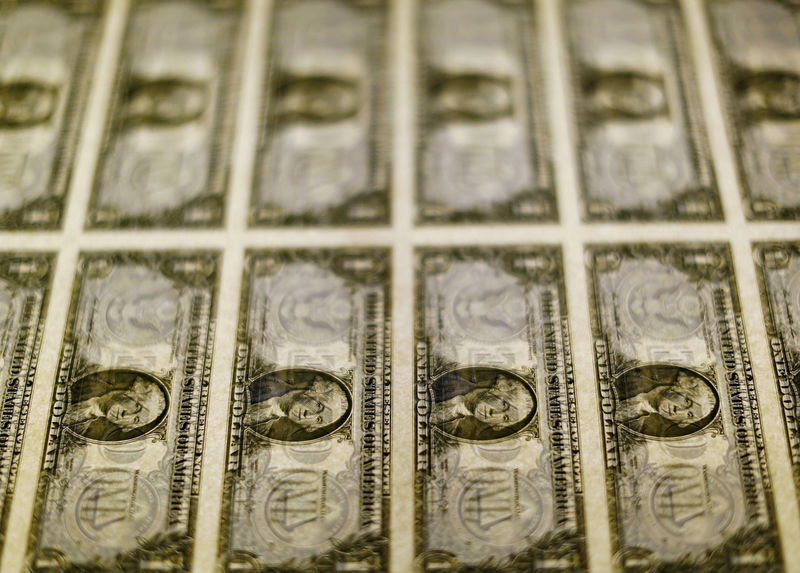Investing.com-- Most Asian currencies tread water on Monday, while the dollar steadied in thin trade as markets awaited more cues on U.S. interest rates from key inflation data due later in the week.
Market holidays in the UK and the U.S. kept trading volumes limited, as did a dearth of immediate cues.
Most regional currencies were nursing some losses from last week after a string of warnings from the Federal Reserve saw traders steadily price out expectations of interest rate cuts by the central bank.
Dollar steadies, PCE inflation awaited
The dollar index and dollar index futures moved little in Asian trade, steadying after rebounding over the past week.
Focus this week was squarely on PCE price index data- the Fed’s preferred inflation gauge- which is due on Friday.
The greenback saw increasing strength in recent sessions as traders steadily priced out expectations of rate cuts by the Fed this year.
Traders are now pricing in a greater chance that the Fed will keep rates steady even in September, according to the CME Fedwatch tool.
The prospect of high for longer rates bodes well for the dollar and poorly for risk-heavy Asian currencies.
Japanese yen firms, broader Asia FX muted
The Japanese yen’s USDJPY pair saw some relief on Monday, as low-volume trading conditions saw traders position for more potential government intervention to support the currency.
The government was last seen intervening during the labor market holiday on May 1, which had sparked deep losses in the USDJPY pair. But the pair had since recouped a bulk of these losses through May.
Inflation data from Tokyo, along with readings on industrial production and retail sales are also due later this week.
Other Asian currencies were muted. The Australian dollar’s AUDUSD pair rose 0.1%, while the Chinese yuan’s USDCNY pair rose slightly after a stronger-than-expected midpoint fix.
Data on Monday showed Chinese industrial profits grew steadily in April.
The South Korean won’s USDKRW pair fell slightly, while the Singapore dollar’s USDSGD pair moved little.
The Indian rupee’s USDINR pair also moved little, but had marked a sharp drop from record highs over the past two weeks.
